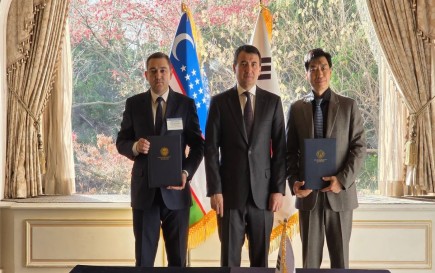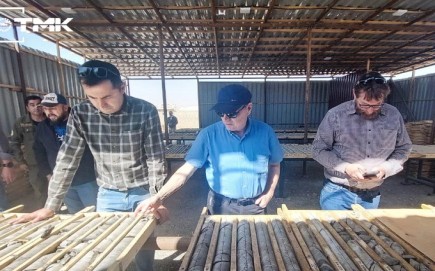On December 12-17, 2018, Westminster International University in Tashkent hosted an intensive training course for women farmers and entrepreneurs from Ferghana Valley designed to develop their skills and knowledge in agribusiness and horticulture.
Around 40 women farmers and entrepreneurs from Ferghana, Andijan and Namangan regions participated in the training course. The event was organized by the World Bank in cooperation with the EU Delegation in Uzbekistan, Embassies of the United States and Switzerland, Business Women Association of Uzbekistan, the Agro Industries and Food Security Agency, Westminster International University in Tashkent and the Oasis Agriculture Training Center.
The six-day training course included modules focusing on women’s startups, marketing, intensive orchard and greenhouse management, drip irrigation, pest control, processing industry, food safety, exporting of fruits and vegetables abroad, and other areas of agribusiness. The modules were run by leading domestic and international practitioners and experts in business management and agriculture.
The course participants also had a chance to visit agri-firms that invested in their new businesses thanks to subloans received from local banks under the World Bank-supported Horticulture Development Project. They also could study the experience of European and American women entrepreneurs who spoke about their agribusiness projects in presented video clips.
The last day of the training course brought together women farmers and entrepreneurs, domestic and international organizations supporting rural entrepreneurship programs, as well as respective state agencies. The event participants discussed challenges and opportunities for attracting finance in agribusiness projects run by women entrepreneurs.
“With improvements in productivity, Uzbekistan’s agriculture sector, which employs millions of people, has considerable potential to boost economic growth and become a critical source of rural employment. It will also improve food security and increase exports of agricultural products. To promote this transition, the World Bank has been actively supporting the Government in the diversification of agricultural production beyond cotton and wheat into other high value crops such as fruit and vegetables, and livestock”, said Hideki Mori, World Bank Country Manager for Uzbekistan at an awards ceremony, where the course participants received their certificates of completion.
“The country’s horticulture sub-sector is an especially important source of all-season employment in rural areas and provides a significant number of jobs for women. The World Bank will continue to closely work with the Government to empower rural women across the country and stimulate their entrepreneurial activities,” Mori added.
The training course was a pilot project, and with the World Bank’s support, its model will be replicated in other regions of Uzbekistan to improve women farmers’ skills and knowledge in agribusiness and horticulture.
Under the World Bank-supported Livestock Sector Development Project 20 women entrepreneurs have already received subloans from local banks totaling US$9 million to develop poultry and fish farming, produce dairy products and raise small ruminant animals and cattle. In addition, under the World Bank-supported Horticulture Development Project, 16 women received subloans from local banks to invest in businesses totaling US$13 million, including greenhouses, intensive orchards, fruits and vegetables production, storage and processing, etc.
In Uzbekistan, the World Bank is implementing 18 projects totaling over US$ 3.3 billion with the aim to support the Government’s social and economic reforms. These projects help implement critical macroeconomic reforms, develop agriculture and water resources management, healthcare, education, water supply and sanitation, energy, transport, and urban sectors. They contribute to the country’s economic growth and higher living standards for the people of Uzbekistan.















